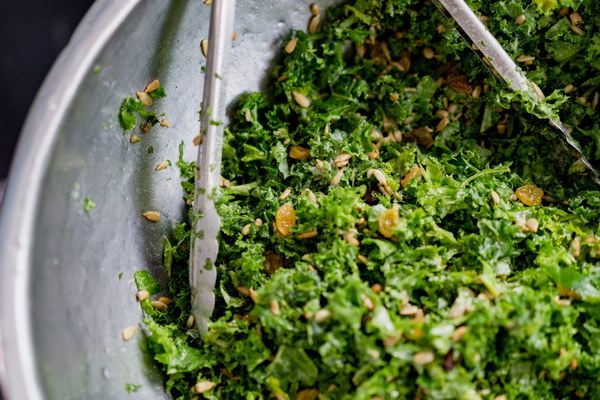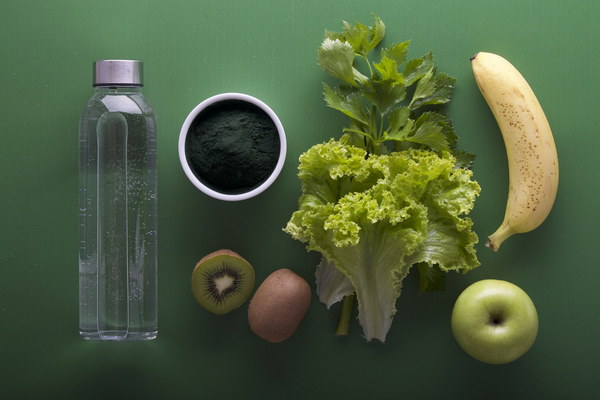Understanding the Impact of Traditional Chinese Herbs on Qi and Blood Deficiency-Induced Diarrhea
In traditional Chinese medicine (TCM), the concept of Qi and Blood deficiency is widely recognized as a common underlying cause of various health issues, including diarrhea. The balance of Qi and Blood in the body is crucial for maintaining overall health, and any imbalance can lead to a range of symptoms. This article aims to explore the use of Chinese herbs in addressing Qi and Blood deficiency-induced diarrhea, as well as the potential benefits and precautions associated with such treatments.
I. Qi and Blood Deficiency: Understanding the Concept
In TCM, Qi and Blood are considered vital substances that are essential for the body's proper functioning. Qi, often translated as vital energy, is responsible for the movement and transformation of substances within the body. Blood, on the other hand, is the substance that nourishes the tissues and organs, providing them with the necessary materials for growth and repair.

When there is a deficiency in either Qi or Blood, the body's ability to perform its functions is compromised. This can lead to a variety of symptoms, including fatigue, weakness, pale complexion, dizziness, and, in some cases, diarrhea. Diarrhea due to Qi and Blood deficiency is often characterized by loose, watery stools, accompanied by a lack of appetite, abdominal pain, and a feeling of coldness.
II. Chinese Herbs for Qi and Blood Deficiency-Induced Diarrhea
TCM offers a wide range of herbal remedies for treating Qi and Blood deficiency-induced diarrhea. These herbs are selected based on their properties and how they interact with the body's systems. Some commonly used Chinese herbs in this context include:
1. Astragalus (Astragalus membranaceus): Known for its ability to boost the immune system and enhance Qi, Astragalus is often used to treat Qi deficiency-related conditions, including diarrhea.
2. Codonopsis (Codonopsis pilosula): This herb is used to nourish the Qi and Blood, and is particularly effective for treating chronic diarrhea due to Qi and Blood deficiency.
3. Ligustrum lucidum (Chinese ligustrum): This herb helps to tonify the Liver and Kidneys, which are essential for maintaining the balance of Qi and Blood. It is often used in combination with other herbs to treat diarrhea.
4. White Peony (Paeonia lactiflora): Known for its anti-inflammatory properties, White Peony helps to alleviate abdominal pain and diarrhea associated with Qi and Blood deficiency.
III. Benefits and Precautions of Chinese Herbs for Diarrhea
The use of Chinese herbs for treating Qi and Blood deficiency-induced diarrhea has several benefits:
1. Natural Approach: Chinese herbs offer a natural and holistic approach to healing, focusing on addressing the root cause of the problem rather than just the symptoms.
2. Safety: Many Chinese herbs have been used for centuries and have a relatively low risk of adverse effects when used appropriately.
3. Customization: TCM practitioners can tailor herbal formulas to the individual's specific needs, ensuring a more personalized approach to treatment.
However, there are also precautions to consider when using Chinese herbs for diarrhea:
1. Quality: It is essential to use high-quality, pure herbs to ensure the effectiveness and safety of the treatment.
2. Consultation: It is advisable to consult with a qualified TCM practitioner before starting any herbal treatment, as they can provide personalized advice and monitor the progress of the treatment.
3. Interaction: Some Chinese herbs may interact with other medications or supplements. It is important to inform the healthcare provider about all current medications and supplements to avoid potential adverse effects.
In conclusion, the use of Chinese herbs for treating Qi and Blood deficiency-induced diarrhea offers a natural, holistic approach to healing. By understanding the concept of Qi and Blood deficiency and the properties of various Chinese herbs, individuals can make informed decisions about their treatment options. However, it is crucial to consult with a qualified TCM practitioner to ensure the safety and effectiveness of the treatment.









